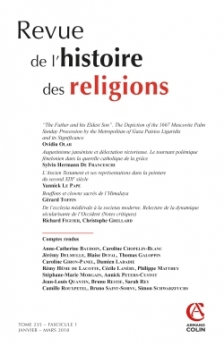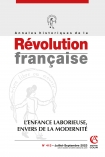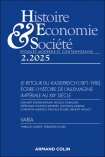
Revue de l'histoire des religions (1/2018)
Pour acheter ce numéro, contactez-nous
Recevez les numéros de l'année en cours et accédez à l'intégralité des articles en ligne.
De 1704 à 1714, Fénelon a multiplié les interventions dans la querelle janséniste en essayant d’imposer dans l’esprit du public l’idée que le jansénisme pouvait être identifié à la thèse selon quoi l’efficace de la grâce divine consistait dans un attrait de délectation victorieuse auquel il n’arrivait jamais que l’arbitre humain ne consentît pas. Le présent article montre que, pour la postérité, l’archevêque de Cambrai a été tenu pour le principal responsable d’un changement de trajectoire conceptuelle de la controverse antijanséniste dont les effets se sont ressentis jusqu’à la fin du XVIIIe siècle et qui a fait de la notion de delectatio uictrix le point central du débat entre augustiniens et molinistes.
From 1704 to 1714, Fénelon published many texts about jansenist quarrel which tried to persuade the public that jansenism can be identified with the thesis according to which the efficiency of divine grace consists in an attraction of victorious delectation which always denies free will the possibility to resist to it. The present works aims at showing that, after his death, Fénelon has been considered as the main responsible of the change of the conceptual trajectory of the antijansenist quarrel. The consequences of this change have been crucial until the end of the 18th Century and, after the works of Fénelon, the notion of victorious delectation was surely the main point in the discussion between molinists and jansenists.

